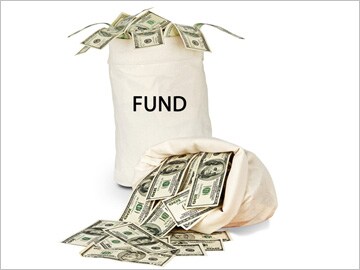
Pain in the Assets
Hedge funds don’t cause a financial crisis, but they can make it worse
When things fall apart, human nature sets us looking for something to blame. The more widespread the havoc, the more adamantly we search. But a study by a trio of researchers indicates that one potential scapegoat can be declared innocent: The recent global financial meltdown was not the fault of hedge funds.
UNC Kenan-Flagler professors Greg Brown and John Hand partnered with Jeremiah Green of Penn State to understand what role, if any, hedge funds played in the 2008 economic implosion.
They found no evidence that hedge funds caused the financial collapse. However, because of the kind of entities they are, hedge funds reacted in a rational way to the falling financial markets and at times might have aggravated the downward spiral. The Journal of Derivatives published their findings in “Are Hedge Funds Systemically Important?”
“Hedge funds didn’t exacerbate the problem deliberately or proactively exploit the crisis,” Hand said. “If they tried, they didn’t succeed.”
The researchers did not take up the question of what part hedge funds might have played in the economic downfall in response to those in the field of finance or politics who wanted to blame hedge funds for the financial crisis. Instead, the researchers wanted answers from a policy point of view.
“If one can identify an entity or group as the cause,” Brown said, “then one could rectify the situation by having regulations or other fixes to reduce the probability of it happening again.”
But regulating hedge funds won’t prevent another crisis, he said.
In the overall investment landscape, hedge funds make up a relatively small portion of assets, compared to all of the banks and financial entities around the world. Some hedge funds, though not all, structure their investments to hedge against potential losses by taking some bets that stocks will go up and at the same time taking bets that stocks will go down.
“To the extent that many hedge funds are hedged, you wouldn’t expect at the big picture level for them to cause a one-way directional change in the market,” Hand said.
U.S. legislators enacted a new financial regulation framework in 2010 that requires financial houses and investors, including hedge funds, to give the government more information about what they’re investing in. The preventive impact likely will be marginal.
“The regulations would help a lot more if hedge funds had caused the crisis,” Brown said. “But they didn’t.”
To conduct their study, Brown, Hand and Green spliced together publicly available data on hedge fund performance with a proprietary data set they obtained from a major hedge fund of funds that covers about 300 funds not reporting to any publicly available database, which includes many of the very largest hedge funds. Having the proprietary data set ensured fewer sample selection problems. Some funds choose not to submit their performance results to major database vendors because they are very successful or very unsuccessful; either way, they’d rather others not know about their performance. But without the outliers, the cross section of data is inaccurate and that increases the possibility of drawing faulty conclusions.
The researchers conducted time-series tests that estimate historical risk-factor loadings for hedge funds and used those risk measures to estimate abnormal returns during the financial crisis. Then they conducted panel regressions over shorter horizons to more accurately identify any short-run changes in factor loadings and abnormal returns.
Among their conclusions, the researchers posited that the real risk from hedge funds is their ability to increase the severity or duration of a crisis. Oftentimes, hedge funds lever up – they borrow money to execute their strategies. When asset prices start falling, hedge funds have to unlever quickly to stanch their losses and meet their debt obligations. The faster prices fall, the faster the hedge funds have to unlever. That can mean dumping shares, which can have a reinforcing effect on the downward path of prices.
Regulators would do better to focus on certain fund-level risks instead of strategy or industry risks, the researchers conclude.
One of the more surprising findings in their study, Brown said, was that hedge funds as a group didn’t perform better during the financial turmoil. This is unusual because hedge funds have the reputation of being among the smartest investors in the capital markets.
“You might have thought they’d have had a great opportunity to make a killing,” Hand said. “But it appears they didn’t.”
Those hedge funds that did do well in the financial upheaval may not have done so due to great skill on the part of their managers. Quite possibly, they were committed to invest in certain types of assets that happened to go up in the financial crisis for reasons that had nothing to do with the investment decisions made during the crisis. The research underscores the risks inherent in hedge fund investments.
“Just because you invest with the smartest people on the block,” Hand said, “doesn’t mean you’ll make money when everyone else is losing their shirts. Indeed, you may lose yours along with them.”
Greg Brown is the Sarah Graham Kenan Distinguished Scholar and professor of finance at UNC Kenan-Flagler.
John R.M. Hand is the H. Allen Andrew Distinguished Professor of Entrepreneurship, Finance and Accounting at UNC Kenan-Flagler.
[This article has been reproduced with permission from research from the UNC Kenan-Flagler Business School: http://www.kenan-flagler.unc.edu/]





